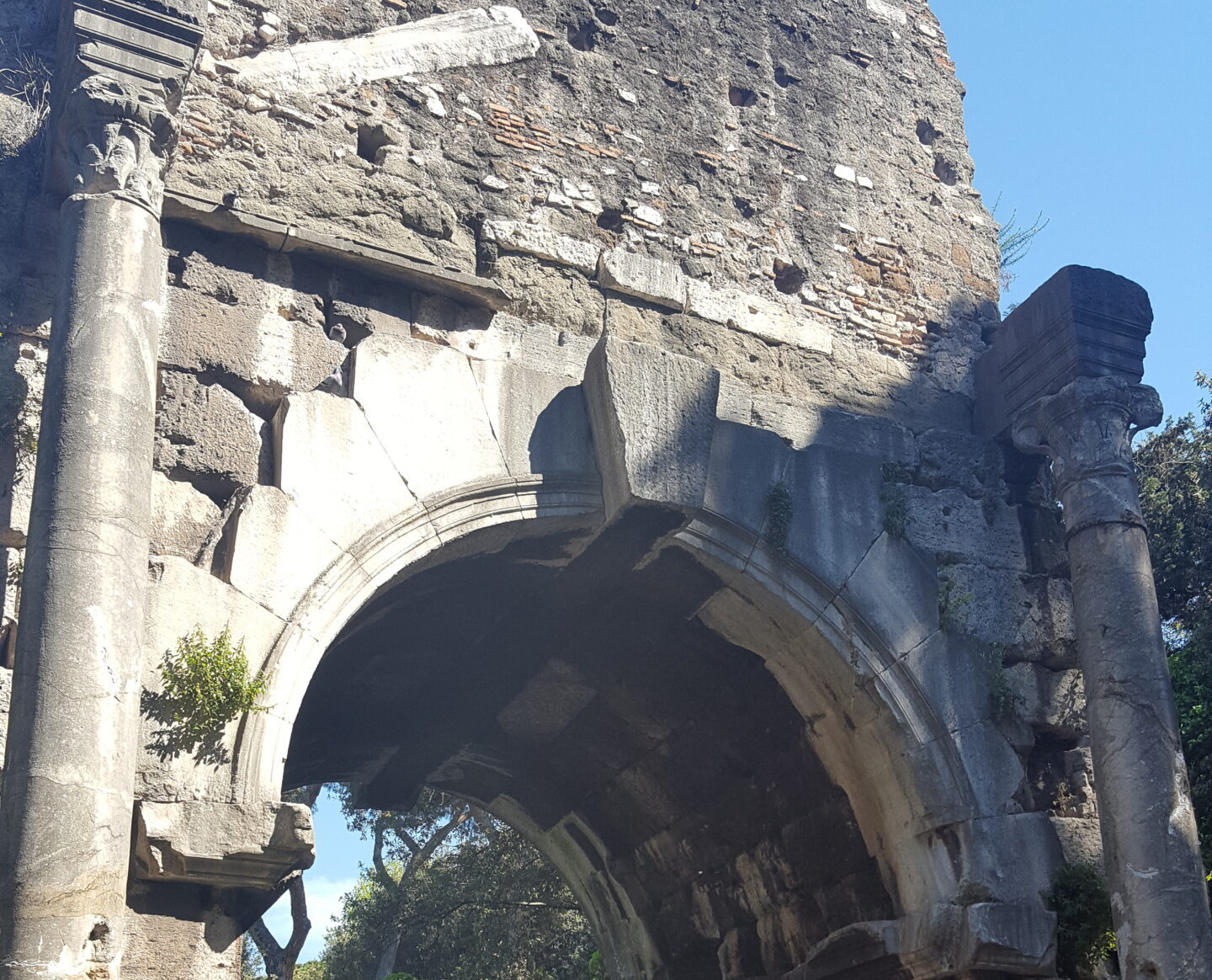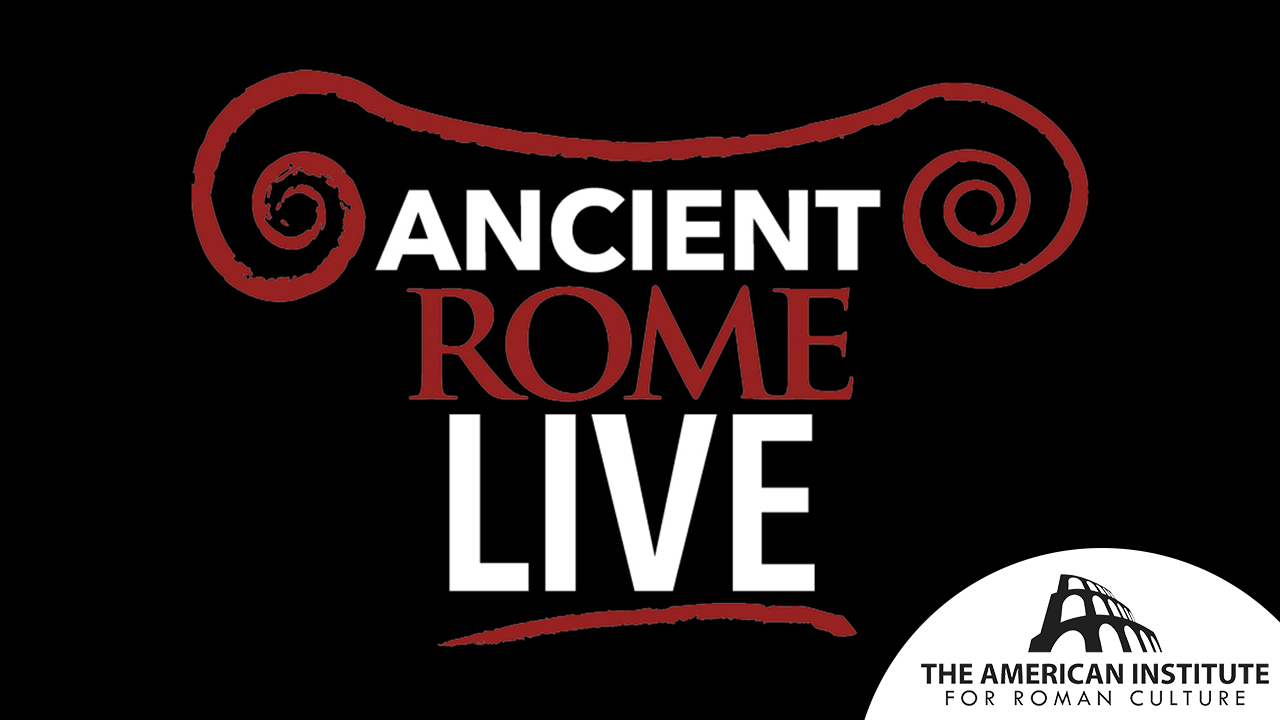Start with our video overview:
Arches are a core feature of Roman architecture, from forming part of monumental structures such as amphitheaters and aqueducts to developing a role in the quintessential triumphs of victorious generals and emperors. Many later Republican and Imperial arches flanked the route of the triumphal procession. The three triumphal arches that remain standing in Rome have central positions: the Arch of Constantine next to the Colosseum, the Arch of Titus on the Via Sacra, and the arch of Septimius Severus in the Roman Forum. The Via Appia was also a common place for monumental constructions, including some examples of memorial arches. Close to Porta Appia lies the so-called Arch of Drusus, which is dated to the early third century CE and so is likely unrelated to the eponymous stepson of Augustus.
The Arch of Drusus was constructed to embellish the aqueduct supplying water to the Baths of Caracalla at the point where it crosses Via Appia. It is composed of two columns topped by an architrave and pediment. Although today it once again stands alone, during the fifth century CE it was incorporated into the defensive Honorian Wall. The original dedication and patron of this arch is not known, but at some point after its construction, it was mistaken for the Arch of Drusus which presumably had already been lost by that time.
Drusus was born in 38 BCE to Livia shortly after her remarriage to Octavian (later Augustus); consequently, there is speculation whether his father was her first husband or Augustus. Octavian adopted his stepson in 32 BCE, and he grew into a proficient military commander, responsible for the conquest of Germania in 12 BCE for which he was awarded with a triumph the following year. He died in 9 BCE, cutting his military and political career short. His elder brother Tiberius had also been adopted by Octavian and became the second emperor of Rome. Through his marriage to Antonia Minor, the daughter of Mark Antony and Octavian’s sister, Octavia, Drusus was the direct ancestor of three emperors: his son, Claudius, his grandson, Caligula and his great-grandson, Nero, the last Julio-Claudian emperor.
The true Arch of Drusus is known to have been constructed over two centuries prior to the current Arch of Drusus, also along Via Appia, likely soon after his death in 9 BCE. It is recorded as a marble structure decorated with trophies, and its location is believed to have been close to the junction between Via Appia and Via Latina. During roadworks in the 1930s, foundations of an arch dating to the relevant period were unearthed and linked to the Arch of Drusus; they lie midway between the presetn-day Arch of Drusus and Porta Appia. Two other arches recorded along Via Appia honoring the deified Trajan and Lucius Verus are thought to have stood near a temple to the god Mars, although the locations of these monuments have not yet been identified. Nevertheless, the name of Drusus survives in the misattributed arch, and the Roman tradition of triumphal and memorial arches has continued into modernity, a prominent example being the 50-meter Arc de Triomphe in Paris, France.
References
- Claridge, “Rome: An Oxford Archaeological Guide”, (Oxford 2010).
- L. Frothingham, “A Revised List of Roman Memorial and Triumphal Arches”, American Journal of Archaeology, (1904).
- Platner, “A Topographical Dictionary of Ancient Rome”, (Chicago 1929).
Arcus Drusi: erected by the senate some time after 9 B.C. in honour of the elder Drusus.
Read more:
It was of marble, adorned with trophies, and stood on the via Appia, probably a little north of its junction with the via Latina. It seems to have given its name to the Vicus Drusianus and is probably the arcus Recordationis of the Einsiedeln Itinerary (11.3; 13.24; cf. Mon. L. I.515; DAP 2.ix.416).
Explore further:
This content is brought to you by The American Institute for Roman Culture, a 501(C)3 US Non-Profit Organization.
Please support our mission to aid learning and understanding of ancient Rome through free-to-access content by donating today.
Cite This Page
Cite this page as: Darius Arya, The American Institute for Roman Culture, “Arco di Druso (Arch of Drusus)” Ancient Rome Live. Last modified 03/28/2022. https://ancientromelive.org/arco-di-druso-arch-of-drusus/
License
Created by The American Institute of Roman Culture, published on 03/28/2022 under the following license: Creative Commons: Attribution-NonCommercial-ShareAlike. This license lets others remix, tweak, and build upon this content non-commercially, as long as they credit the author and license their new creations under the identical terms. Please note that content linked from this page may have different licensing terms.



